FOR ALEX, DEBBIE AND KATEY
‘How pleasant it is to have money, heigh-ho!
How pleasant it is to have money.’
ARTHUR HUGH CLOUGH (1819–1861)
Two of the men driving eastwards down the M4 Motorway, near London’s Heathrow Airport, were driving particularly badly. One drove badly because he was a rotten driver. The other, who was normally a good driver, was distracted by the blonde girl in the seat beside him who was trying to remove his trousers.
It was five past one on a blazing hot early June afternoon. Both men were late. One was on his way to his office in the City of London. The other was on his way to kill someone not very important.
‘Move over, you bastard, move over!’ Baenhaker pushed down on the horn rim with the palm of his right hand. ‘Oh move over, why can’t you just move over?’ He pushed the horn rim twice more, holding it down each time for several seconds, holding it down so hard that the thin metal cut into his hand.
‘You pig,’ declared Baenhaker. ‘You bloody pig!’ He pulled the head-lamp switch on the dashboard full out, pushed it back in, then pulled it out again. In the bright sun, there was only the faintest gleam from the lights that reflected on the gun metal grey paintwork of the Porsche in front of him. He pushed the light switch back in. ‘Fucker!’ he shouted uselessly through his windscreen, and yanked the switch back out. It came away in his hand; he tried to replace it, dropped it, and it rolled away somewhere underneath his feet.
Baenhaker glanced at his watch: one-five; over half an hour late already, not yet past Heathrow Airport, and stuck behind this bastard in his Porsche crawling along in the fast lane. He banged the horn rim down hard and held it there for several more seconds before releasing it. He was now convinced that the driver in front was blocking his path deliberately. His rage caused him to start breathing in short sharp bursts; he looked at the red ribbon on his speedometer, flickering between forty and forty-five miles per hour, and wondered whether to risk getting booked by passing on the inside. He decided not to; he knew this motorway was always crawling with police.
Baenhaker’s Volvo, with its faded red paintwork and worn upholstery, was living testament to the car company’s claims about the longevity of its products; this particular one had survived one hundred and thirty-seven thousand miles and six owners since it had first rolled out of the Cardiff dealer’s showroom. Baenhaker had bought it neither for its looks nor its durability nor its history; he had bought it because it had been all that he could afford. Whenever he saw any young man of similar age to himself driving a smart car, he became eaten up with jealousy. He had not yet seen the driver of the Porsche, but he had already decided that he was young. He had also decided that, whoever he was, he hated him more than he had ever hated anyone before in his life. He was not yet to know it, but in a few moments he was going to have good reason to magnify that hatred by several hundred per cent.
‘You shmuk!’ he yelled. He pushed the horn down hard, and held it there. This time, he decided, he was going to keep it pressed down until the Porsche moved over.
Alex Rocq gripped the small three-spoked wheel tightly. The refrigerated air in the cockpit of the Porsche 911 Turbo had a rarefied smell of new leather and expensive perfume. Four Blaupunkt speakers delivered the crystal-clear, graphite-equalized, DBX expanded rendering of Elton John’s solemn farewells to a Yellow Brick Road.
‘Not here!’ said Rocq, wriggling and trying to move upright in his seat. He took his right hand off the steering wheel, and tried to refasten his fly zipper. He put his hand back on the wheel, and her hand pulled the zipper down again. At the same time, her tongue burrowed into his left ear.
‘Winkie wants to come out,’ she said.
‘Amanda, I can’t drive.’
‘Why don’t you pull over?’
‘I have to get to the office. Ouch!’ A very cold hand slid down inside the front of his trousers. He was vaguely aware, a mile or so down the motorway ahead, of some obstruction in the fast lane: an orange hazard light was flashing. Above the music was another noise, something persistent. Her mane of expensively highlighted blonde hair descended onto his lap. ‘Come on, stop it!’ He tried to push her off with his elbow; that noise persisted. He glanced at the speedometer. ‘Christ!’ Forty miles per hour in the fast lane. A sharp pain: ‘Owww!’ he yelled. ‘You’re hurting!’
Rocq looked in the mirror; there was on old Volvo with its lights blazing, right on his tail. He pressed the accelerator down and as the Porsche surged forward, it began to move over into the middle lane. ‘Sit up, Amanda, for God’s sake — someone’s passing us.’
‘Mesugener!’ shouted Baenhaker, as the Porsche suddenly pulled away from him, as if taunting him, and then moved over into the middle lane, as if to really rub it in. ‘What the hell do you think you’re bloody playing at?’ he yelled. He changed down into third gear, and flattened the accelerator. The steady ticking of his engine turned into a hard-working roar, but for some moments he made no headway against the Porsche. Then the Porsche suddenly slowed down, and Baenhaker began to draw level. As he did so, he removed his left arm from the steering wheel, opened up his index finger and middle finger, and began to flick V-signs at the driver of the Porsche for all he was worth. But the driver did not notice him; he appeared to Baenhaker to be in a trance.
‘Bloody well concentrate on your driving!’ yelled Baenhaker. Then he saw a mane of blonde hair rise up from the driver’s lap, and the smiling face of a beautiful girl look up at the driver, and say something.
Baenhaker’s eyes became transfixed on the girl’s face. Already contorted with anger, his own face now assumed an expression that would have opened the bowels of a rabid vampire bat. The girl he was staring at was the girl whom he had been planning to propose to this past weekend. They should have spent the weekend together in the country. Today was Monday; on the Thursday, she had telephoned him to say that the weekend was off because she had suddenly been called to an international architects’ conference in Cologne. He had never been to an architects’ conference, but what he was looking at didn’t look much like an international architects’ conference to him.
He sat, stunned. He mouthed, ‘Bitch,’ but no words came out. She didn’t even notice him. Suddenly, the Porsche accelerated off again. He turned his eyes back to the road. Less than fifty feet in front of him, and completely stationary, was a tarmac-spreading lorry; along its back was a massive flashing arrow that pointed to the left. At seventy miles per hour, fifty feet wasn’t very far.
Baenhaker stood on the brake pedal, and froze. The Volvo slewed to the right, ripping into the central reservation barrier; the front left of the car slammed into the rear of the lorry. As if on some nightmare ride at a fairground, Baenhaker felt the rear of the car rise up, and keep rising, and then over, slowly, very slowly, everything suddenly went into slow motion, and he knew he was going to die.
Then everything speeded up again. The roof smashed into the tarmac, and the windscreen exploded in front of his eyes; fragments of glass rushed in, lashing him like winter rain. Then up again, and over. He was aware of lorries, cars, screechings, roarings, silence for a moment, followed by the bang of a thousand dustbin lids; all four doors flew open and there was rushing wind, then over again, then sliding, sliding like a mad thing, now downwards, down a dip, then stopping dead. Baenhaker carried on travelling forwards; his chest snapped the steering wheel in half; his forehead ripped open on the windscreen trim.
Читать дальше
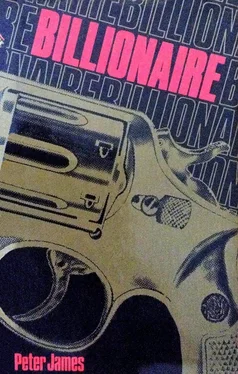
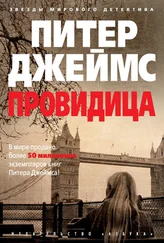
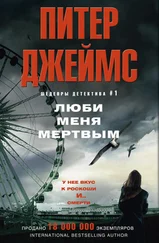
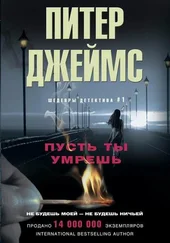

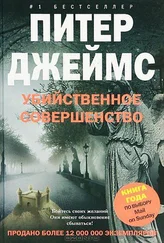

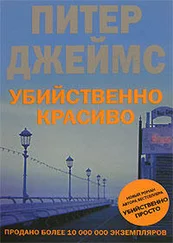



![Питер Джеймс - Искушение [litres]](/books/423638/piter-dzhejms-iskushenie-litres-thumb.webp)
![Питер Джеймс - Wish You Were Dead [story]](/books/430350/piter-dzhejms-wish-you-were-dead-story-thumb.webp)